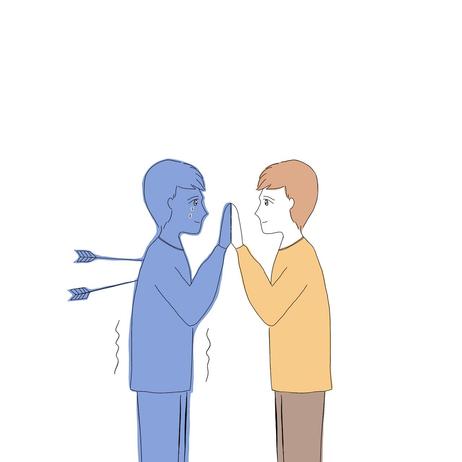Understanding ADHD in Children: Signs, Diagnosis, and Support Strategies
Disclaimer: I have researched answers to these questions that link to or refer back to authoritative sources. However, I am not a healthcare professional. So, always consult a healthcare professional with your specific concerns and questions.
What is ADHD?
Attention Deficit Disorder is a common disorder that afflicts both children and adults.
- I have taught children who have been diagnosed with ADHD.
- I have also managed adult employees who had ADHD.
- So, here are the questions I would ask if I thought my child might have Attention Deficit Disorder.

How do you define Attention Deficit Disorder?
Attention-deficit/hyperactivity disorder (ADHD) is a neurodevelopmental disorder characterized by persistent patterns of , , and that interfere with daily functioning and development.
According to the American Psychiatric Association's , there are three main subtypes of ADHD:
1.
In this presentation, symptoms of inattention are looked for, such as difficulty paying attention, being easily distracted, and frequently making careless mistakes in their schoolwork or other activities.
2.
In this presentation, children will display symptoms of hyperactivity and impulsivity, such as fidgeting, excessive talking, difficulty waiting for their turn, and interrupting others.
3.
In this subtype, children display symptoms of both inattention and hyperactivity-impulsivity.
This video offers an overview of ADHD in children.
What are the signs parents should look for?
Parents should look for various signs that may indicate ADHD in their child.
- These signs can manifest differently depending on the child's age and subtype of ADHD.
- Parenting Confident Kids has you can take to help you identify some of the signs of ADD/ADHD.
The CDC offers :
Inattention: Includes disorganization, problems staying on task, constant daydreaming, and not paying attention when spoken to directly.
Impulsivity: Includes spur-of-the-moment decisions without thinking about the chance of harm or long-term effects. They act quickly to get an immediate reward. They may regularly interrupt teachers, friends, and family.
Hyperactivity: Involves squirming, fidgeting, tapping, talking, and constant movement, especially in situations where it's not appropriate.
Some of the things to look for are:
Inattention
- Difficulty sustaining attention in tasks or play activities
- Frequently making careless mistakes
- Difficulty organizing tasks and activities
- Easily distracted, forgetfulness
- Frequently losing items
Hyperactivity
- Fidgeting or squirming in seats
- Frequently leaving their seat inappropriately
- Running or climbing excessively
- Difficulty engaging in quiet leisure activities
Impulsivity
- Blurting out answers before questions are completed
- Difficulty waiting for their turn
- Interrupting or intruding on others' conversations or activities
ADD is diagnosed if a child under age 16 has 6 or more symptoms of inattention (5 or more for older teens) for at least 6 consecutive months but no signs of hyperactivity/impulsivity. Source:
Who can diagnose ADHD?
Don't rely on conjecture or supposition.
- Consult a healthcare professional.
- He can explain the symptoms and how to treat them.

Seek qualified opinions.
Healthcare professionals, including pediatricians, child psychologists, and psychiatrists, are qualified to diagnose ADHD.
- A thorough evaluation is necessary.
- This may include gathering information from parents, teachers, and other caregivers, observing the child's behavior, and possibly conducting standardized assessments.
Understand that there is no single test for ADHD.
- Diagnosis is based on a comprehensive assessment of your child's symptoms, developmental history, and functional impairments.
- That's why you must seek evaluation and diagnosis of your child's symptoms from qualified healthcare professionals experienced in diagnosing and treating ADHD.
- This will ensure an accurate assessment and appropriate intervention strategies to support your child's development and well-being.
For more information and resources on ADHD diagnosis and management, parents can consult reputable sources such as the following:
This video explains the diagnosis of ADHD.
The Prognosis
Will ADHD get better with age?
While the symptoms of ADHD may change and evolve over time, it's important to understand that ADHD is a chronic condition.
- It typically persists into adulthood.
- However, the way in which ADHD manifests and its impact on individuals may vary across the lifespan.
ADHD does not get worse with age if a person receives treatment for their symptoms after receiving a diagnosis.
If a doctor diagnoses a person as an adult, their symptoms will improve when they start their treatment plan, which could involve a combination of medication and therapy.
Older adults may notice their ADHD symptoms change over time, especially at key points in their lives — for example, when they enter menopause.
While ADHD research on older adults is limited, people who are 70–80 years old tend not to experience as many ADHD symptoms as those who are 50–60 years old. Source:
It varies widely. In some cases, individuals may experience a reduction in symptoms as they mature and learn coping strategies to manage their ADHD symptoms more effectively.
- For example, hyperactivity may decrease with age, and adults with ADHD may develop better impulse control over time.
- However, many individuals continue to experience symptoms of ADHD throughout their lives, although these symptoms may present differently in adulthood compared to childhood.
For instance, adults with ADHD may struggle with executive functioning skills.
- These include organization, time management, and prioritization, which can affect their academic or occupational performance, relationships, and overall quality of life.
- It's also worth noting that some individuals may not receive a diagnosis of ADHD until adulthood.
- This is because symptoms may not be as noticeable or may be attributed to other factors during childhood.
- In such cases, untreated ADHD can still significantly impact daily functioning and well-being, underscoring the importance of accurate diagnosis and appropriate management across the lifespan.
- While ADHD itself may not "go away" with age, early diagnosis, appropriate treatment, and ongoing support can help individuals with ADHD manage their symptoms effectively and lead fulfilling lives.
- A combination of medication, therapy, education, lifestyle modifications, and support from healthcare professionals, educators, and family members can help adults manage ADHD.

Photo by iStockPhoto
The following websites offer more information on ADHD across the lifespan, as well as strategies for managing symptoms in adulthood:
What does my child with ADHD need the most?
She needs a supportive environment and tailored interventions to help her thrive.
While the specific needs of each child with ADHD may vary, several key elements are generally beneficial for their well-being and development:
- Understanding and Patience
- A Structured Environment
- Individualized Support
- Positive Reinforcement
- Effective Communication
- Access to Treatment
- Emotional Support
- Healthy Lifestyle Habits
By addressing the unique needs of your child with ADHD and providing her with appropriate support, understanding, and resources, you can help her reach her full potential and thrive in various aspects of her life.
Questions? Contact us on Facebook, Instagram, and YouTube. @publicschoolreview
#ADHD #Parenting #SupportStrategies #ChildDevelopment #SpecialNeeds #Education #MentalHealth #Wellbeing #Empowerment #ParentingTips #publicschools















